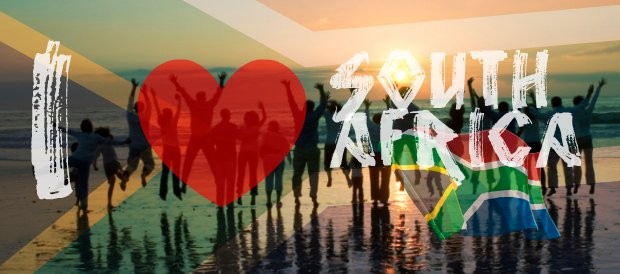So what is the state of South Africa, twenty four years into the democratic experiment? As with all questions, the answer differs according to who one asks, and where they stand, the latter being understood both literally and metaphorically.
Valentine’s Day 2018 witnessed the grudging resignation of President Jacob Gedleyihlekisa (he who laughs at you while physically hurting you) Zuma, the fourth incumbent of that office since 1994.
The former political prisoner and guerrilla, the charismatic husband of four women, with little formal schooling and a modicum of training a la the Soviets, was eventually forced to throw in the towel. Zuma, previously ousted by President Mbeki, acquitted of rape, now faces the prospect of trial on corruption, racketeering, money laundering and fraud charges. His resignation was the inevitable outcome of the ANC Elective Conference of December 2017 that put paid to his efforts to protect himself and his inner circle from due legal process by promoting the candidacy of his former wife Nkosana Dlamini-Zuma, erstwhile African Union Chairperson. Instead the delegate vote gave the slimmest of margins to Cyril Ramaphosa, Zuma’s Deputy President.
The presidential gallery includes Nelson Mandela the royalist-conciliator, the modernizer-nativist Mbeki, caretaker Mothlanthe, and tribalist-populist-looter Zuma, now followed by the negotiator-businessman and former unionist Cyril Ramaphosa.
The various presidents and the population as a whole, inherited both the apartheid mess and the considerable physical and economic infrastructure that it built from the mid 19th century going forward. In 1994 South Africa was the 25th largest economy in the world, reasonably diversified, dependent on commodity exports for foreign earnings, one of the most unequal, and the scientific and technology giant of Africa.
Having secured political power for the majority, the big issue was what next? The complex task was to purge racist legislation, modernize the rule book, open opportunity to the previously marginalized, maintain excellence, this to be achieved in the era of globalization, Chinese expansion, and the exhaustion of the gold mining premium.
A generation later one might summarize the current reality as follows: on the downside, very low economic growth; continued environmental degradation; eroding public services including schooling, health, infrastructure, transport and security; high unemployment; a high burden of communicable and non-communicable disease, a slide in relative economic size, and massive internal dependency on social grants. On the upside, a competitive tourist industry; vesting of mineral rights in the state; world class higher education; excellent high end medical services; a highly competent science system; successful locally owned TNCs; commendable HIV and TB treatment regimes; an independent judiciary and media; great food, music and artists.
The Zuma years further compromised the downside as the looters ate the golden goose until civil society organizations, the judiciary and media, with some opposition parties, drew the line in the sand. Zuma is scheduled to appear in court on 6 April.
So President Ramaphosa is now called to the office that Mandela would have preferred him to have occupied by 1999. That was not to be, and ‘CR’ now faces something like the challenge that Lee Kwan Yew tackled in the Singapore of the 1960s. How to stop the rot; how to build the capable state; how to restore accountability and end the culture of entitlement. It is a task far bigger and more complex than a Singapore. The private sector remains essentially ‘white’ and foreign owned; the civil service is now essentially ‘black’ and bloated in size with average salaries a third or more higher than the private sector. The consequence is that production-led growth has stagnated as the country remains dependent on commodity sales for its foreign currency needs. Shifting productive activity to manufactured exports remains an aspiration, but high wage levels and resistance to tax-exempt special economic zones limit the prospects.
It is undeniable that the black middle class has benefited from the new order, and has more than doubled in size. This group constitutes a significant proportion of tax payers who feel let down by the state that does not provide the quality schooling, health and security that taxpayers expect. The peri-urban poor receive state grants and struggle to make ends meet in crime-ridden favelas; the rural poor also receive social grants and remittances from family. Floating above the vast pockets of poverty is a layer of wealthy persons of all colours, some of whom were already comfortable pre-1994.
To make matters more complex are the divisions within the ruling party, and its drift to placate the shrill voices of the quasi-fascist vaguely left-wing political party known as the Economic Freedom Fighters. They have emerged as kingmakers, a voice of the angry and downtrodden, and champions of expropriation of land without compensation.
So to answer the question, how is the country doing? For a rural-urban migrant, who is now a peri-urban shack dweller – ‘my children have better education chances and it is easier to get health care, but crime is killing us, and we live far from work opportunities.’ For a black civil servant – ‘its ok, but I don’t think that my taxes really give me what I expect. For prospective businesspersons, ‘market entry is so restricted by old boys clubs. If only we owned the land.’ For the minority groups – ‘we are doing ok, we miss our children who work in Dubai or Perth, but things might get rough.’
The real answer lies in the implementation of the National Development Plan of 2012 that laid out a vision of an inclusive society supported by a capable state, and in which accountability would be an intrinsic value. That ‘Plan’ lacked teeth, yet is the very device that President Ramaphosa, deeply involved in its drafting, knows he must energize if the country is to embark on what futurist Clem Sunter terms ‘the high road.’ So this is the test for Ramaphosa, he who outfoxed the now defunct National Party in the constitutional negotiations of 1994-1996, he who is one of the wealthiest African capitalists in the land, he who has deftly kept dubious politicians of the Zuma cabal inside the tent while he builds his grand coalition. His ascent to power has been greeted favourably across a very broad constituency, with many harking back to the grace of the Mandela years, perhaps oblivious that the very corruption now in play began, or rather continued through that time. The task is considerable: the courts will be filled with a raft of the very corrupt, exposed most brilliantly in a server dump known as ‘Gupta’ leaks. This will all take time, and the rule of law ensures that due process unfolds. As to foreign matters, a push back against China is inevitable, given the involvement of its firms in the questionable activities of the Gupta family. His appointment of the shrewd Lindiwe Sisulu as foreign minister will bring consistency and pragmatism to that portfolio, with country-by-country strategy rather than working with external blocs, be these the EU or BRICS. Cometh the hour, cometh the man?
* Michael Kahn is Professor extraordinaire at Stellenbosch university, Capetown region, South Africa; and a key early member of the Euro-BRICS academic network created by LEAP in 2009.
The views expressed in this paper are those of the author, and do not necessarily reflect the views LEAP.


 LEAP2040 Toutes les informations et archives Europe2040
LEAP2040 Toutes les informations et archives Europe2040



